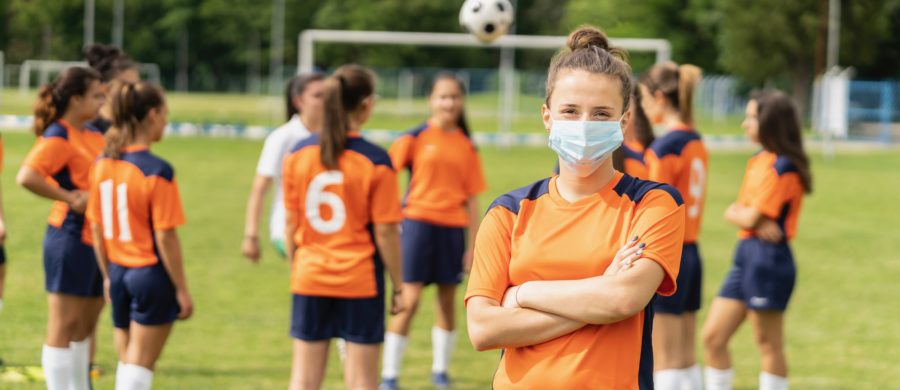Summer is the time to start scheduling fall middle and high school pre-participation sports physical examinations. Read on to learn about why sports physicals are important, how to prepare, and what to expect.
Why is a child’s sports physical important?
The goal of a child’s sports physical is to ensure that participating in their athletic endeavors is safe. Our goal as medical providers is to:
- Identify life-threatening risks to participation
- Address underlying health issues that could worsen with physical activity
- Discuss previous injuries
- Treat conditions that could interfere with performance
- Provide appropriate patient-specific recommendations and restrictions
- Eliminate any previously placed restrictions that are unwarranted
Is it too early to schedule my child’s sports physical?
While Boulder Medical Center providers conduct sports physicals throughout the year, it is important to schedule a visit during the Summer to be ready for Fall sports.
The American Academy of Pediatrics (AAP) recommends that physicals occur at least 6-8 weeks before the athletic season so that further evaluation (e.g., EKG or cardiology or orthopedic consultation) can be completed before the season. They also recommend that sports physicals be scheduled once each year before the child’s upcoming athletic season.
Why should my child’s regular doctor conduct their sports physical?
We recommend that the sports physical be conducted in your child’s medical home (with your primary care pediatrician or family medicine provider) rather than an urgent care or “station” setting where group/mass physicals are performed. This ensures that the provider has full access to your child’s medical records, previous knowledge of their history, and that proper privacy and confidentiality is maintained during the medical visit.
It is often possible to complete a sports physical during the annual wellness visit with your child’s primary care provider. Although the evaluation content covered during the wellness exam and a sports physical is not typically the same, many providers will complete all of the content in the same visit. Just ask your nurse and/or physician. Completing both exams may take extra time. Be aware that your provider might ask you to schedule a follow-up visit to cover specific concerns that they cannot address during a combined wellness/sports physical evaluation.
How to Prepare for a Sports Physical
To get the most from your child’s physical exam visit, come prepared to discuss any concerns, including:
- Physical and mental health questions
- Past injuries and chronic medical conditions that physical activity may exacerbate, such as exercise-induced asthma
- Pertinent family history. Specifically, your provider is interested in a family history of muscle/bone/joint problems, anemia, heart murmurs/rhythm, and valve problems, fainting, hypertension, or family history of sudden death
- History of head injuries and concussions; it’s critical to discuss a plan for a head injury and concussion care and clearance protocols to return to play should a concussion occur in the future
What happens during a sports physical?
During a thorough sports physical visit, your child’s provider will:
- Conduct a comprehensive physical examination with attention to the cardiovascular and musculoskeletal systems
- Obtain a medical history, including family history as well as screening for mental health problems, such as depression
- Discuss the use of drugs, alcohol, smoking, and sexual history (if appropriate)
While rare, sometimes a concern may arise that requires additional evaluation. For instance, if your provider discovers a new murmur or heart rhythm issue, they may refer your child to a pediatric cardiologist or order an EKG. Another example is if a provider learns of chest pain, palpitations, or fainting, they may refer to a cardiologist for consultation. In cases of musculoskeletal injury, your provider may recommend consulting with an orthopedist or physical therapist.
COVID-19 and the Sports Physical
During the Covid-19 pandemic, we learned that having COVID increases the risk of heart problems in children and adolescents. For this reason, it is important to let your provider know if your child has had COVID so that they can conduct additional screenings.
Resources
Schedule your child’s sports physical and well-child visits today.
The board-certified pediatricians and family medicine physicians at Boulder Medical Center are committed to providing personal, high-quality, and compassionate health care to present and future generations, from newborns to young adults. With clinics in Boulder, Louisville, Erie, and Longmont, we’re conveniently located in your neighborhood.
Meet our providers and make an appointment with a Boulder Medical Center pediatrician or family practice physician.

